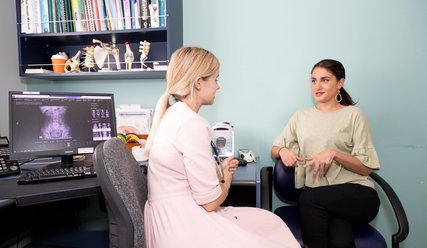Joint media release: General practice organisations reject Government funding increase
General practice organisations have rejected the Government’s proposed 5 per cent increase in general practice funding from July 1, saying that an increase of at least 14 per cent is needed to keep services going.
In a joint letter to Te Whatu Ora the primary care organisations that make up the General Practice Leaders Forum say the proposed 5 per cent uplift will in no way address the emergent crisis in general practice, and is likely to compound current workforce and cost pressures.
General Practice New Zealand (GPNZ), GenPro, Hauora Taiwhenua, The Royal New Zealand College of General Practitioners (RNZCGP), the Practice Managers Association (PMAANZ) and College of Primary Care Nursing have provided Te Whatu Ora with a comprehensive counterproposal that includes workforce solutions as well as additional funding.
The organisations insist that the need for investment in general practice is unequivocal in order to avoid harm to our population.
Dr Fiona Bolden, Chair of Hauora Taiwhenua/Rural Health Network said: “People need to be able to enrol with a GP, to be able to get an appointment with their practice in a timely way, and to be able to afford an appointment when they need one. Sadly, this is an increasingly difficult scenario for many New Zealanders, particularly some of our most vulnerable and high needs.”
“We need more staff to care for patients, and we need more funding for practices so they can retain staff and recruit more to maintain services for our communities,” said Michelle Te Kira, Executive Chair of PMAANZ.
Tracey Morgan, Chair of NZ College of Primary Health Care Nurses said: “The formal response made by GPLF sets out a 20-point plan designed to build and support the general practice workforce and ensure that future funding arrangements promote sustainable and equitable services for all New Zealanders.”
“Our counterproposal is a recovery plan for general practice,” adds Dr Bryan Betty, Chair of General Practice New Zealand. “We are offering a range of solutions and want to work with Te Whatu Ora urgently on new funding arrangements based around community needs and modern general practice. General practice can do more if it resourced to do more. Even within a constrained funding envelope, there are a range of initiatives that will help to improve equity, access and best possible health outcomes for New Zealanders and support our over-stretched primary care workforce.”
One third of general practices are not able to take on any new patients and half of all New Zealand GPs report that they are burnt-out, the highest number in any country surveyed by the Commonwealth Fund.
“Our 2022 workforce survey found the number of GPs per 100,000 people is projected to fall from 74 in 2021 to just 70 in 2031. That is a big reduction, especially when we know that 10 extra GPs per 100,000 people means about 30 people a year wouldn’t die from cancer, respiratory, and cardiovascular issues,” said Dr Sam Murton, President of the RNZCGP.
“Our findings also showed if all 425 GPs over the retirement age left the workforce immediately there would be approximately 725,000 patients without a doctor. It’s clear the situation is both desperate and growing,” Dr Murton adds.
The funding model problems are not new. After a sustained call to revisit funding the Government, via Interim Health New Zealand, commissioned Sapere to review general practice funding last year. Their independent report showed that a 9 per cent increase in funding was required for practices just to stand still – a figure far higher in communities with the greatest health needs. Sapere also provide the annual uplift calculations which resulted in an offer from Te Whatu Ora of 5 per cent this year.
Dr Tim Malloy, Chair of GenPro said the group know the Government is likely to impose the 5 per cent increase which is well below inflation and costs, for the financial year beginning on July 1, just as it imposed a 3 per cent increase last year.
“The funding model currently in use by the Government doesn’t accurately reflect the real costs of running a general practice, plus it doesn’t consider that many people have higher needs and visit their general practice care team more often. Our members are clear, they are struggling to recruit and retain staff. Many wonder how they’ll keep their doors open unless we get this much-needed investment.”
ENDS
For further information
Marie Simpson, Head of Communications and Engagement, GPNZ
marie.simpson@gpnz.org.nz or 0211575204.
Related

26 September 2025 | Media releases
Up to 700 GP trainees to benefit from funding boost this year

21 August 2025 | Media releases
Funding round opens for research benefitting general practice

30 July 2025 | Media releases